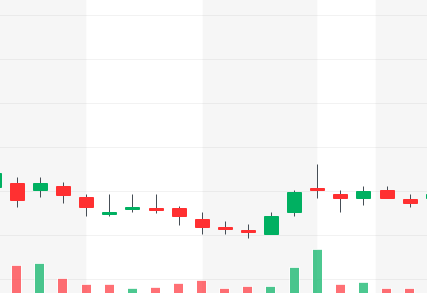Options Trading in the UK: A Guide For Novice Traders
A beginner’s guide to options trading in the UK
In the sophisticated world of financial instruments, a novice can easily become overwhelmed by the sheer volume of the various markets. Options trading forms part of the vast range of financial shares, indices, currencies, commodities like silver and gold and derivatives. However, in order to start trading options, it’s imperative to have an understanding of what they are. Options form part of the numerous derivatives which makes up a sizeable segment of the stock market. As is indicative of the name, when engaged in options trading in the UK, a derivative is a value assigned to an underlying asset. The profit or loss that one can incur is in direct correlation with the value of the asset or stock.
What are options?
In addition to forming part of the derivative family, an option presents the trader with a contract for the rights to either buy or sell 100 underlying shares. The contract dictates the buying and selling price of the share along with the duration of time in which the transaction must be completed.
The expiration date when engaged in options trading in the UK
In options trading, you can buy options on large segments of stock, futures, commodities etc., that you foresee will either experience an upward or downward trajectory over a specific period of time. In other words, you have to execute your trade within the confines of a certain period. As is the case with forex trading, you can leverage your purchasing power in order to procure more stock than would conventionally be allowed. All options have a set expiry date – something that is decided once the order is placed, in other words, once the trade is locked in. Once the expiration date is reached, the contract gets closed automatically by the online broker at the current price before the end of the business day. However, it should be noted the expiration date can be set days, weeks, months and even years away. It is advisable to follow updates, news and guides to stock markets on high-profiled broker sites, and via reputable financial media outlets before executing what is known as an options premium.

Options premium
In the industry, the payment that a trader puts down for an options contract is referred to as an options premium. Typically, options procured number 100 shares of the underlying asset or stock and thus the fixed price will account for 100 shares. There are a number of variables that can impact the price of the options premium. A major influencing factor on the premium price is the difference between the stock’s market price the chosen exit price of the trade. Then there’s the time value, which is basically how far out the trader’s prediction of the stock is. The longer the period of time, the greater the time value, which in essence means that the options premium is higher.
The volatility of options and stocks in the UK
This brings us to the topic of volatility when engaged in options trading in the UK. Volatility relates to the unpredictable nature of the market and thus the price of the stock during the holding period. If there’s any indication that the stock is going to swing one or the other, in other words, if one is able to see where it’s going to land, then the premium cost will veer towards the higher side. If however there’s stability in the foreseeable future, then the cost will be lower. This can make trading options a rather tricky affair and one that can only be conquered with patience, applicable knowledge and possibly automated trading software – robots designed to study algorithms and make trades on the trader’s behalf.

